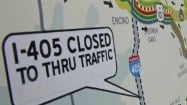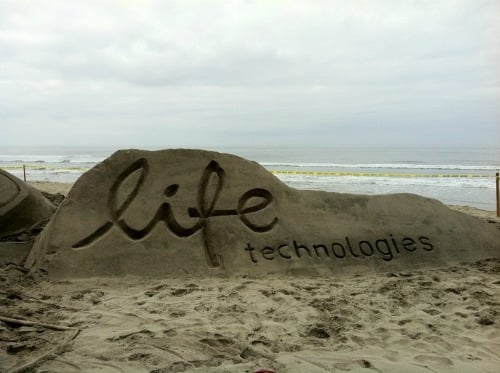Tags: University of California Davis, MIT, cell biology, synthetic biology, Nevada, Event
This story not only amazed us but brought home how important the work of researchers and medical equipment technology developers is in real time, right now, for saving the lives of actual people. Read the update below, too. -- 12/23/2011
Tags: Harvard University, Northeast, Stem cell research, Translational Research, 2012, Massachusetts, Boston, BioResearch Product Faire Event, Event, MA, Harvard, Laboratory Equipment Supplier, Research equipment, transplant success story, 2011
Once upon a time realizing university officials really wanted to know where students were congregating and what they were doing together had an ominous ring, but that's all changed in the super-connected, GPS-tracked world of today's social media. Internet connectivity no longer means checking in from the vague no-man's-land of cyberspace: with the smartphones almost everyone now has (at least the Gen Y set), you are constantly locatable in real space through the geo-locator technology built into your phone. This geo-social component of social networking offers new possibilities for interacting with places as well as people, and leaving a market-opportunity-rich breadcrumb trail while you're at it.
Tags: vendor shows, Event, industry news, National, marketing, iPhone app
Tags: genome research, Southwest, California, San Diego, Event, Laboratory Equipment Supplier, south west
 Now, rather sooner than one might have wished, that vision of a less-car-dependent populace is being put to the test. It's being called Carmageddon, the closure of the 405 Fwy through the heart of LA for an entire weekend this July 15th (at midnight) through the 17th. What will this human science experiment in the living laboratory tell us about Angelenos' prognosis for survival in a more sustainable world?
Now, rather sooner than one might have wished, that vision of a less-car-dependent populace is being put to the test. It's being called Carmageddon, the closure of the 405 Fwy through the heart of LA for an entire weekend this July 15th (at midnight) through the 17th. What will this human science experiment in the living laboratory tell us about Angelenos' prognosis for survival in a more sustainable world?According to a UCLA Newsroom report entitled "The Day the 405 Stood Still":
 At UCLA, shutting down is not an option: With a major hospital to run, summer camps to attend and petri-dish experiments to keep alive, university officials expect 8,000 to 10,000 people on campus.
At UCLA, shutting down is not an option: With a major hospital to run, summer camps to attend and petri-dish experiments to keep alive, university officials expect 8,000 to 10,000 people on campus.UCLA Today in its "UCLA braces for Carmageddon" piece adds:
More than 1,900 hospital employees will keep UCLA’s two hospitals purring, with several hundred doctors, nurses and other staff bunking in campus residence halls in case of an emergency. Roughly 200 children will attend long-ago promised sports camps, about 200 MBA students start classes, and 150 teachers from China will arrive at LAX to begin teacher-training on campus.
UCLA Medical Center's response to the potential nightmare is to put itself on high alert, take measures to see that it continues to function normally, and make on-campus housing available for commuting staff "in case of an emergency." Presumably that emergency would be impassable roads. They don't seem to anticipate an influx of patients as a result of the freeway closure, though the way the event is being imagined in science fiction terms makes it sound like casualties are inevitable. Will road rage turn into rioting and looting? Will there be a mass psychiatric meltdown? Will people trip on the unfamiliar laces of their walking shoes? Rest assured, more police will be out (on bicycles?), according to UCLA Today's article:
The UCPD and UCLA Transportation are among the departments scheduling extra staff to make sure everything runs smoothly, and both UCPD and the LAPD are considering overnighting in UCLA dorms.
Tags: University of California Los Angeles, Southwest, California, Los Angeles, Sustainable Architecture, UCLA, Event, laboratory



